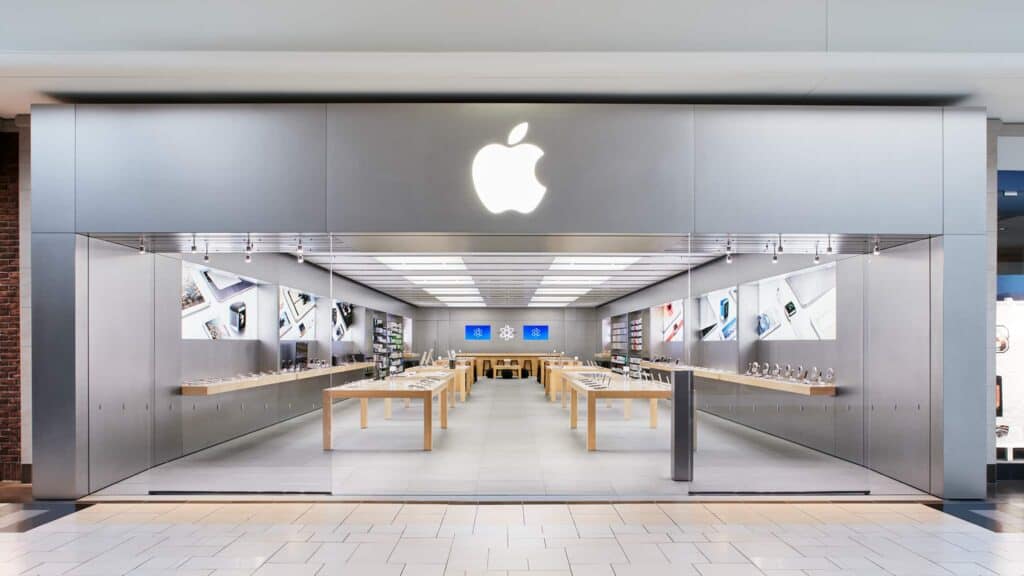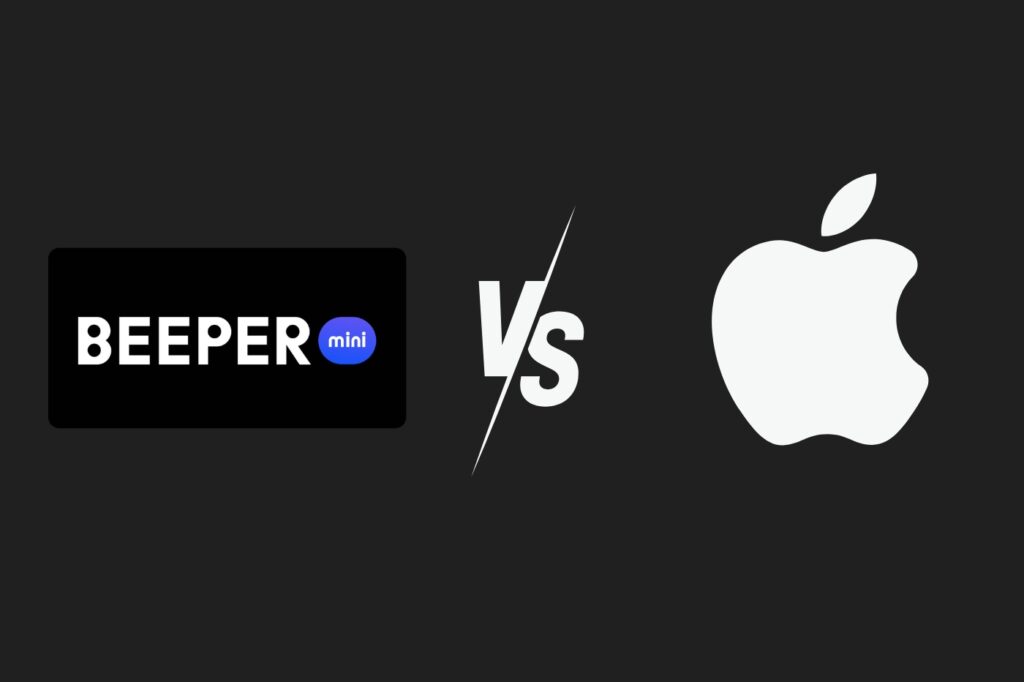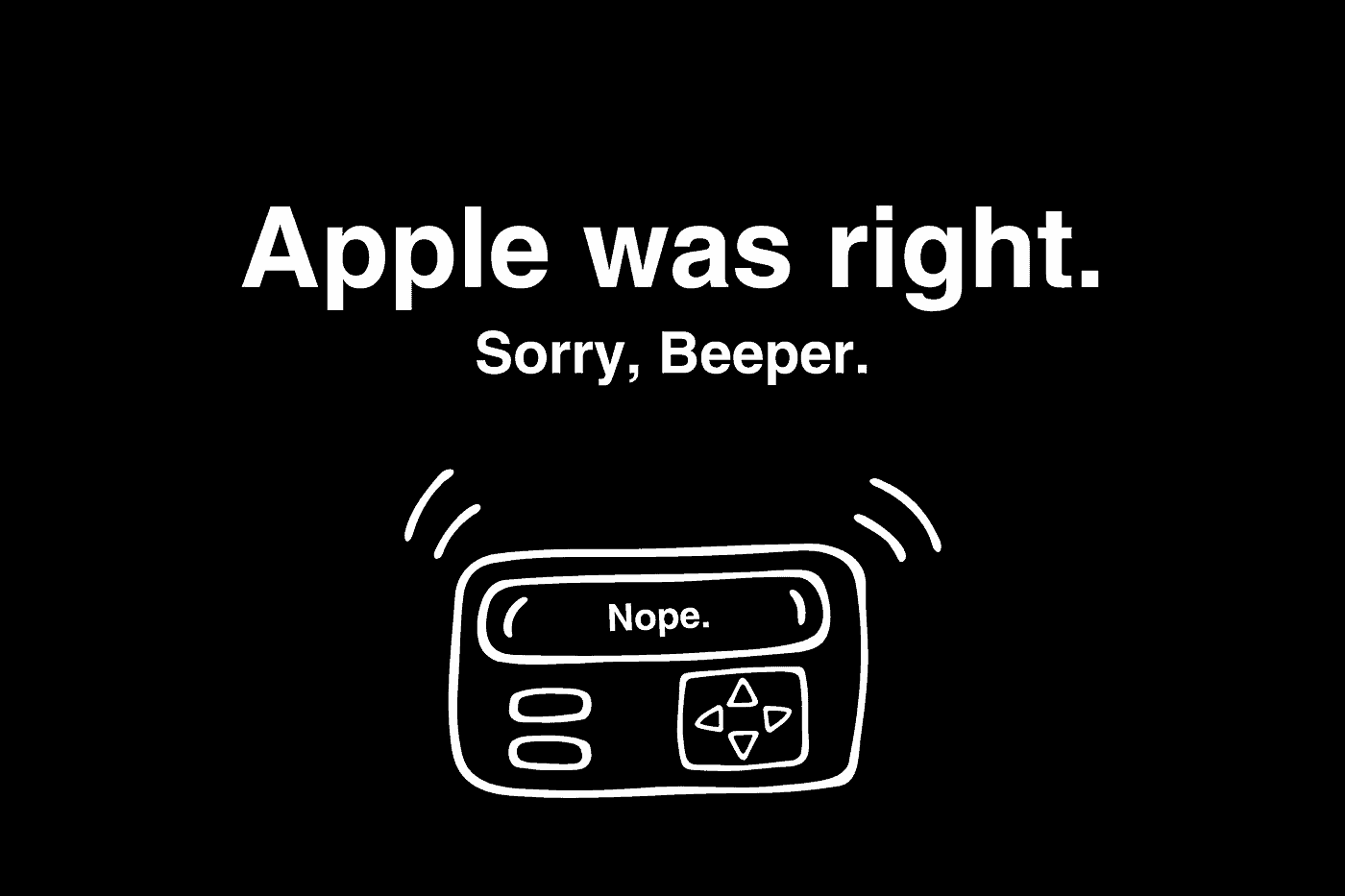Over a dozen entities urge the Department of Justice and Senate Judiciary Committee to probe Apple for potential anticompetitive practices concerning its management of messaging, apps, and other facets.

The US Department of Justice has received correspondence: A coalition comprising over twelve tech advocacy groups sent a letter to the agency today, urging it to initiate an investigation into Apple’s alleged anticompetitive conduct.
The correspondence asserts that Apple’s recent action in blocking Beeper, a service that reverse-engineered iMessage to enable compatibility with Android phones, serves as another instance of Apple “misusing its authority to suppress competition and safeguard its renowned ‘walled garden.'” This letter was dispatched by the Tech Oversight Project, an advocate for more stringent regulations in the tech industry.
Yesterday, Demand Progress, an organization focused on internet-related civil liberties, sent a follow-up letter to the Senate Judiciary Committee, urging it to initiate an independent investigation into Apple. Over twelve additional progressive advocacy groups, such as the Electronic Frontier Foundation, the American Economic Liberties Project, and Fight for the Future, joined in endorsing both letters.
Reports indicate that the Department of Justice has been investigating Apple for antitrust concerns since at least 2020. In a letter from the Tech Oversight Project to the DOJ, there is a call for an expedited investigation and the initiation of an antitrust lawsuit against Apple. The letter cites a prolonged history of alleged anticompetitive behavior, including preferential treatment of its own products on its devices, unfair policies for third-party apps, control of the App Store marketplace, and the use of its market dominance to undermine smaller competitors. Additionally, Bloomberg disclosed in December that an EU antitrust investigation might reach a decision on enforcement against Apple for its control of the app store as early as 2024.
The communication to the DOJ also referenced the recent closure of Beeper Mini and previous grievances from Tile, a manufacturer of tracking devices. Tile had complained that the functionality of its product was compromised by Apple when the iPhone manufacturer introduced its own AirTag trackers.

Demand Progress, boasting over a million members, made a plea in its separate letter to Dick Durbin, the Senate Judiciary Committee chair, and Amy Klobuchar, chair of the committee’s subcommittee on antitrust. The appeal was for these leaders to advocate for a public hearing and an inquiry into Apple’s practices, specifically addressing its approach of maintaining exclusivity of iMessage to its own devices.
Demand Progress, boasting over a million members, made a plea in its separate letter to Dick Durbin, the Senate Judiciary Committee chair, and Amy Klobuchar, chair of the committee’s subcommittee on antitrust. The appeal was for these leaders to advocate for a public hearing and an inquiry into Apple’s practices, specifically addressing its approach of maintaining exclusivity of iMessage to its own devices.
Intensifying Pressure
The recent Apple-Beeper incident has prompted increased scrutiny on Apple’s stringent control over its services. On December 17, four US senators reached out to Jonathan Kanter, the assistant attorney general of the DOJ’s antitrust division, urging the department to investigate whether Apple potentially violated antitrust laws by restricting Beeper’s functionality in connecting Android messages to iMessage.
Beeper, a Silicon Valley startup established three years ago, introduced its Beeper Mini app on December 5 to facilitate communication between SMS messaging on Android devices and Apple’s iMessage protocol on iPhones. Initially priced at $2 per month, the app is now available for free.
The Messages app from Apple is exclusively available on Apple devices, presenting incoming SMS messages from Android phones in green bubbles rather than the blue bubbles used for iPhone messages. Additionally, Android users typically experience a less secure and media-rich messaging environment when communicating with iPhone users. Beeper aimed to address these compatibility issues and provide Android users with a messaging experience on par with iPhone owners.

Following the launch of Beeper Mini, Android users who registered were able to enjoy iPhone features such as tapbacks, and recipients on iPhones observed these messages as blue bubbles. Beeper asserted that it enhanced the security of messaging between Android and iPhone users by implementing full end-to-end encryption, surpassing the security level of a standard Android SMS-to-iPhone message exchange.
However, Beeper Mini encountered disruptions shortly after its launch, leading Beeper to suspect that Apple may have blocked certain functionalities of the app. Apple later confirmed to the Verge that it had taken measures to safeguard users by obstructing techniques that exploit false credentials to access iMessage. According to Apple, the methods employed by Beeper posed significant risks to user security and privacy.
In response, Beeper adjusted its technical infrastructure in an attempt to maintain the app’s functionality, now requiring users to provide their Apple ID email and password to work with iMessage, a requirement absent in the initial version. Additionally, Beeper eliminated the subscription fee. Despite these adjustments, the app continues to experience intermittent outages.
The letters calling for investigations into Apple, issued by both the Tech Oversight Project and Demand Progress, contribute to the recent heightened scrutiny faced by major US tech companies. From 2005 to 2020, companies such as Apple, Google, Microsoft, and Meta have played a substantial role in the US economy, employing millions of workers and contributing nearly 10 percent to the country’s gross domestic product, according to government estimates. However, this extensive scale has granted these companies significant influence over markets and the lives of consumers. Just earlier this month, a San Francisco jury ruled that Google’s mobile app store constituted an illegal monopoly in a case brought by Epic Games, the developer of Fortnite.
Mark Lemley, a professor at Stanford Law School and director of the Stanford Program in Law, Science, and Technology, notes the timeliness of this issue following Epic’s recent victory. Despite Epic losing a similar case against Apple, there is growing regulatory interest in examining closed ecosystems, particularly in understanding the motivations of companies like Apple to impede or hinder competing apps, such as Beeper, on their platforms. Lemley predicts that, akin to Google, Apple will face increasing pressure to open its app store and platform to broader competition from alternative providers.
🌟 Stay In the Loop with Journal Perspective! 🌟
📚 Dive into a world of insights, stories, and perspectives at Journal Perspective! We’re your go-to source for thought-provoking content and captivating narratives. Don’t miss out on the latest trends, tips, and tales that we curate just for you.
✨ Follow Us for a Daily Dose of Perspective:
👉 Facebook: Connect with us on Facebook for engaging discussions and updates. [Follow Now]
👉 Twitter: Join the conversation on Twitter—where tweets turn into meaningful dialogues. [Follow Now]
👉 Instagram: Get a visual sneak peek into our world. Follow us on Instagram for behind-the-scenes and stunning visuals. [Follow Now]
👉 LinkedIn: For the professionals and the intellectuals, follow us on LinkedIn for career insights and industry updates. [Follow Now]
🚀 Subscribe to Our Newsletter:
Don’t want to miss a thing? Subscribe to our newsletter for a curated roundup delivered straight to your inbox. [Subscribe Now]
🔗 Explore Our Website:
Uncover a treasure trove of articles, stories, and perspectives on our website.
🌐 Connect with us and be part of the Journal Perspective community. Together, let’s explore the world through a different lens! 🌐


Emersyn Lambert